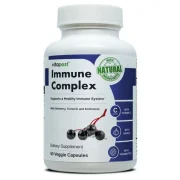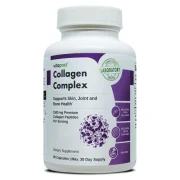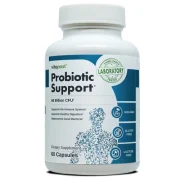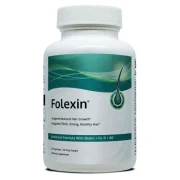The Top 10 Dietary Supplements for Optimal Health and Wellness
Hey there, wellness warriors! 🌿 So, you’re on the hunt to supercharge your health, and you’ve heard the buzz about dietary supplements. But with the myriad of options out there, where do you even start? Fear not, my friend. Today, we’re diving into the top 10 dietary supplements that just might make you feel invincible (well, almost). Let’s journey together into the world of wellness.
1. Multivitamins: The Daily Essentials
We kick off with the all-rounder, the MVP of the supplement world – the humble multivitamin. Think of it as a safety net, filling any gaps in your diet.
- Why take it? To ensure you’re getting a comprehensive array of nutrients daily.
2. Omega-3 Fatty Acids: Brain and Heart Champions
Fancy a little brain and heart love? That’s where Omega-3s step in.
- Why take it? They’re stellar for cognitive function and cardiovascular health.
3. Vitamin D: The Sunshine Vitamin
Ever feel sunnier after, well, some sunshine? Vitamin D might be why!
- Why take it? Boosts mood, bone health, and immune function.
4. Probiotics: For Gut-Feeling Greatness
Your tummy deserves all the love. Probiotics are like sending in the good guys for your gut.
- Why take it? Healthy digestion and improved gut flora.
We recommend:
5. Turmeric Curcumin: The Golden Spice
This ain’t just for curries. It’s nature’s answer to inflammation.
- Why take it? Anti-inflammatory wonders and joint health.
6. Magnesium: The Relaxation Mineral
For those nights when counting sheep just doesn’t cut it.
- Why take it? Supports sleep, muscle function, and energy production.
7. B-Complex Vitamins: The Energy Boosters
Ever wanted to feel like you’ve had a caffeine hit, without the jitters?
- Why take it? For energy, brain function, and fighting off that midday slump.
8. Antioxidants (Vitamins C & E): The Age-Defiers
The dynamic duo that takes on free radicals like superheroes.
- Why take it? Skin health, immune support, and anti-aging benefits.
9. Iron: The Vitality Vessel
Especially for my plant-based pals out there. Iron is key!
- Why take it? Energy, focus, and overall vitality.
10. Collagen: The Fountain of Youth
Want to feel sprightly and keep that skin radiant?
- Why take it? For skin elasticity, joint health, and hair luster.
Before You Dive In…
Alright, superstar, a quick heads-up. While supplements can work wonders, they’re not magic bullets. It’s essential to pair them with a balanced diet, proper sleep, and regular exercise. And always, ALWAYS chat with a healthcare pro before you start a new supplement regimen.
To Wrap It Up…
Navigating the supplement sphere can feel like trekking through a jungle, but with the right map (and perhaps this list), you’ll find your path to optimal health. Here’s to discovering the perfect mix that makes you feel on top of the world! 🌎✨
Till our next wellness adventure, stay vibrant and thrive! 🌱💪



